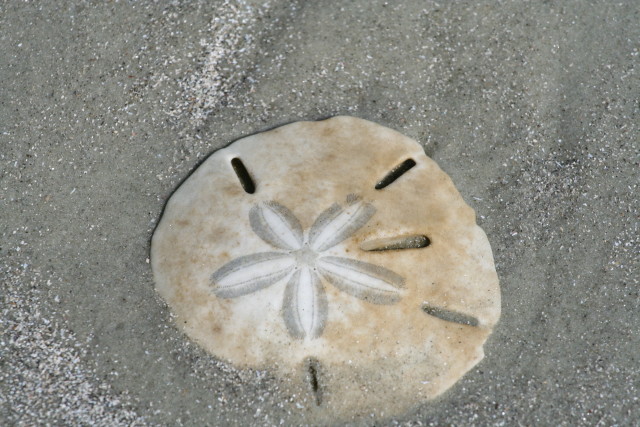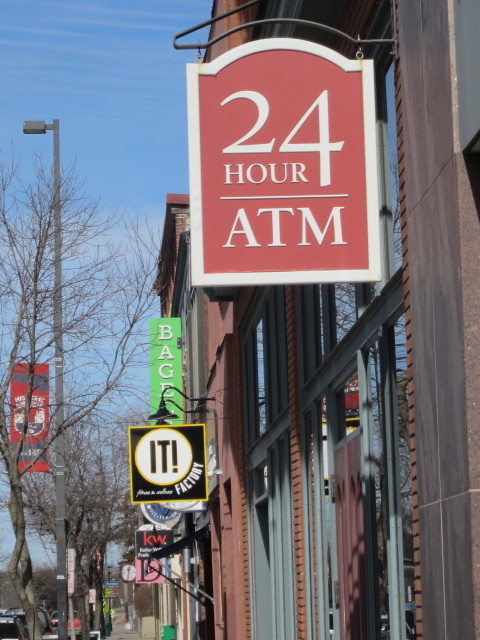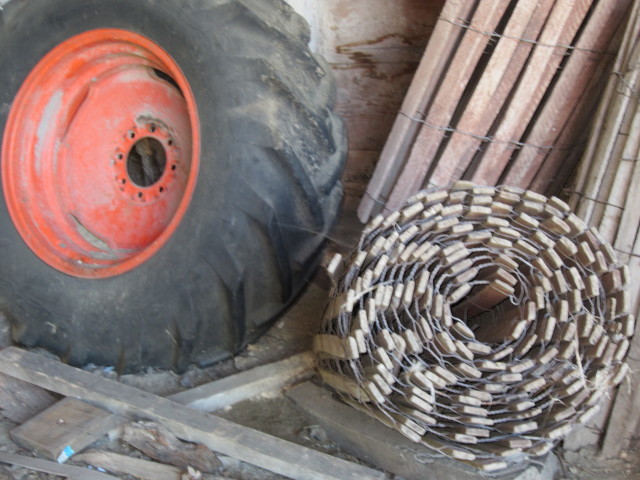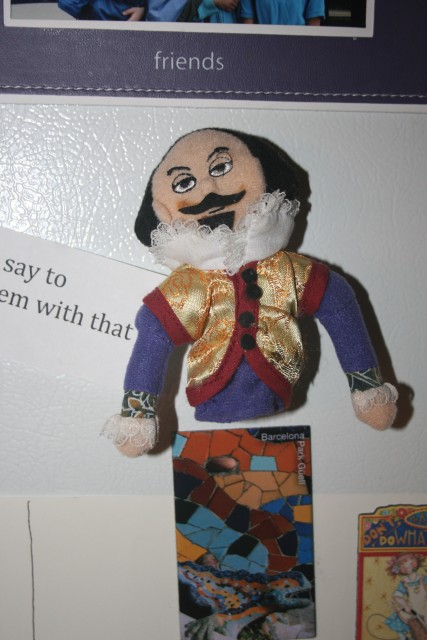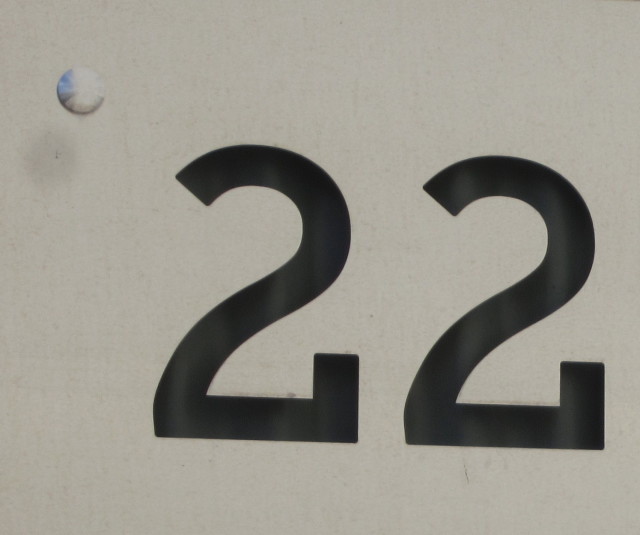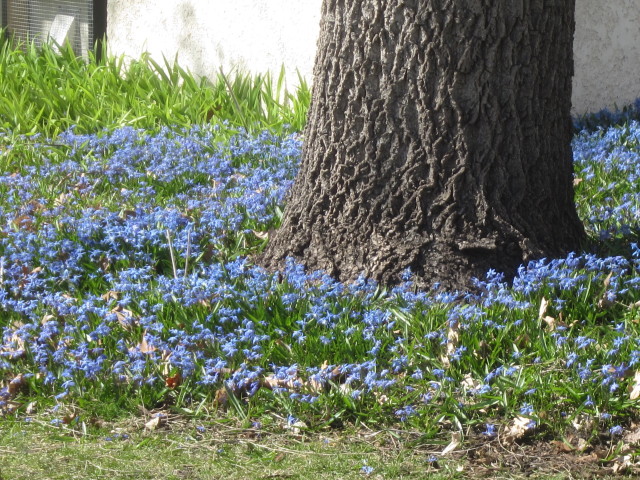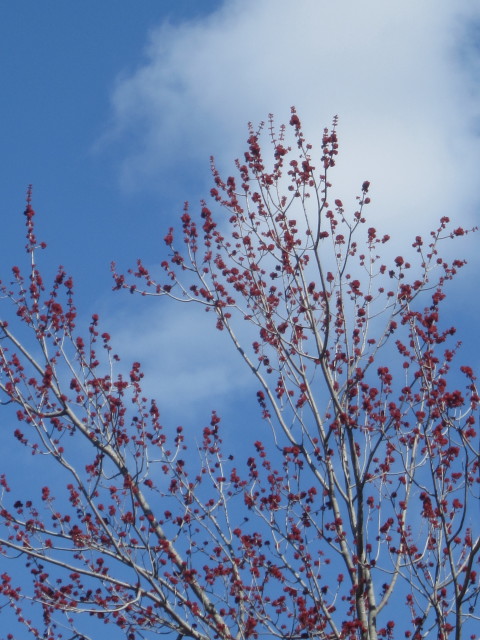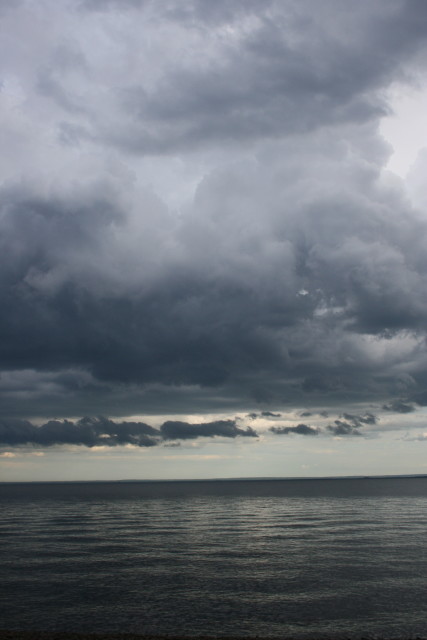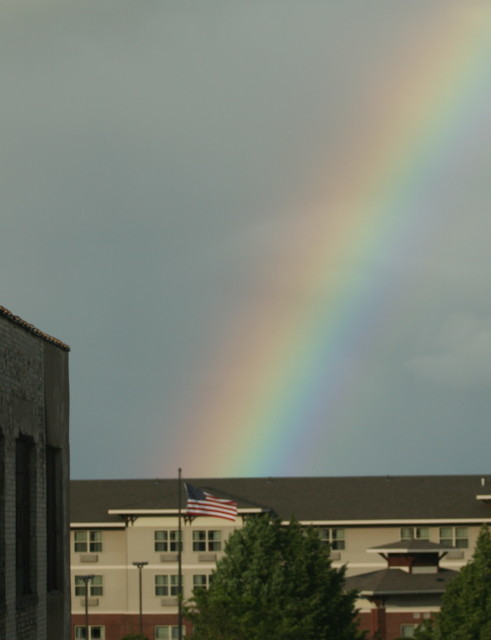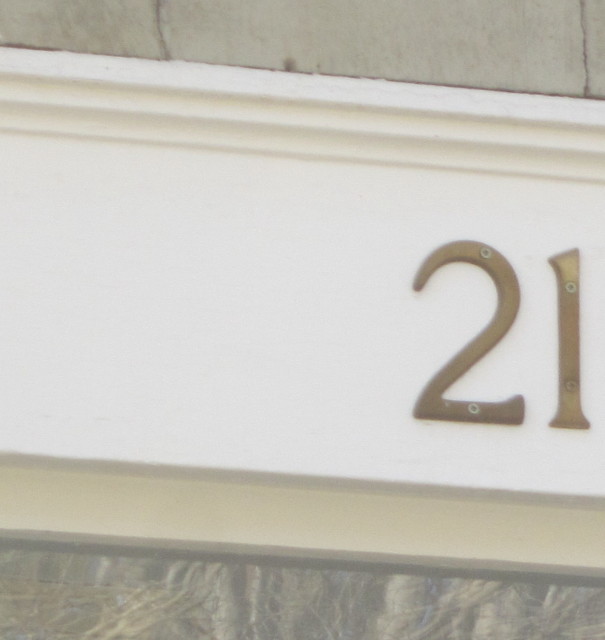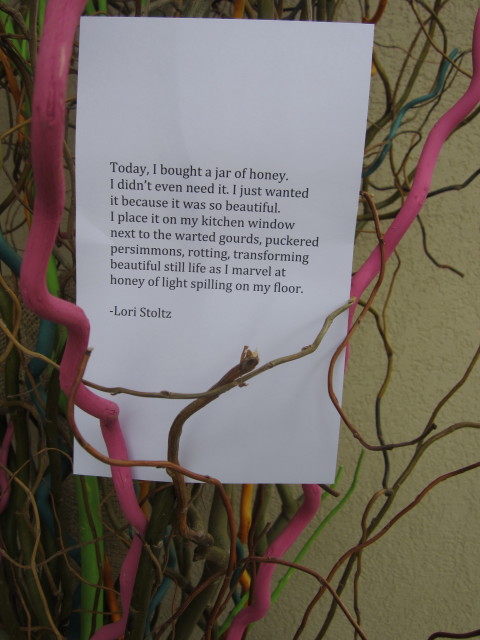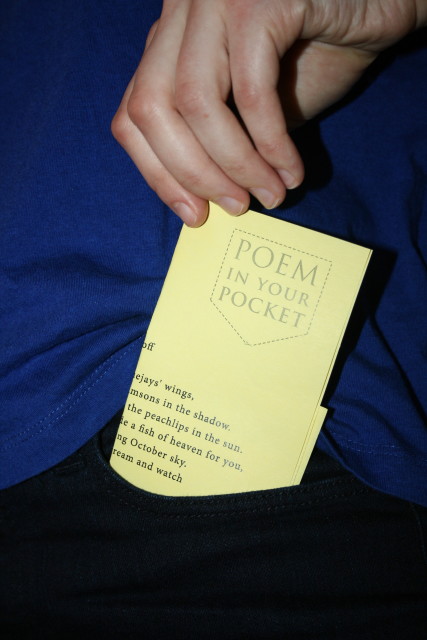Accessorizing for the Beach
In February, I dream of beaches.
In frozen, landlocked Minnesota
I dream of sand, tides, and warm sea breezes.
I wake, down coffee, don a blue parka,
drive to a shopping place where I can hear
the sounds of water running, echoing.
Here beige floor tiles approximate sand.
All the merchants have anticipated
my dream of beaches, our collective dream.
Mannequins would shiver if they could. Nude,
mostly, and headless, or clad in motley
triangles of scanty muslin or net,
they are amply equipped with accessories—
purses as large as apartments, wedges
of footwear angled sharply as ski runs.
They hold dark glasses and umbrella hats,
stand ready to protect their endangered,
essential, but currently vanished heads.
Leslie Schultz
In February, when I began thinking about participating in National Poetry Writing Month, I decided to try to begin each post with a photograph of the number corresponding to the day. And I decided I would try to find examples of numerals out in the world.It was harder than I expected to find numbers–especially in differing fonts. There is much more variety in terms of script in the world at large than there is for numbers, I found.
When Julia needed to get a few things at the Mall of America, I found a several in the Mall itself and in the parking garages. (My favorite is #9–the enormous “9” on the back of a man’s jersey–taken that same day.) Today’s mercantile signage was the first image I took. Along the way I learned that house numbers, license plates, and highway signs have rather little by way of variation, but with a little blunt cropping they were serviceable. By the end of March, I had secured photographs of numbers from “1” to “30”–with a single exception: “26”.
Perhaps if I lived in a larger city equipped with elevators rising to twenty-sixth floors or streets or avenues running to higher numbers, I might have spotted something during the past three months of watching and hoping. The number I need for tomorrow’s post seems rarer than a unicorn in my world!
Have you sighted one? If so, and it is possible to snap a digital photo and emailing it to me by midnight, I would love that. Otherwise, I will create something out of found household objects!
Meanwhile, speaking of found objects, here are some images from a 2011 trip to the Georgia coast.
Until Tomorrow!
Leslie



